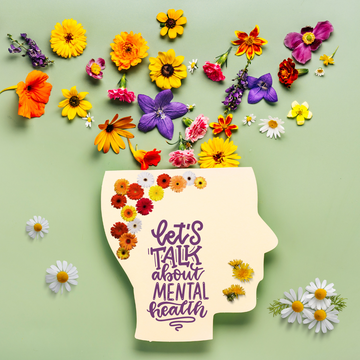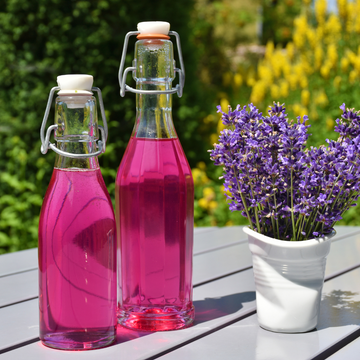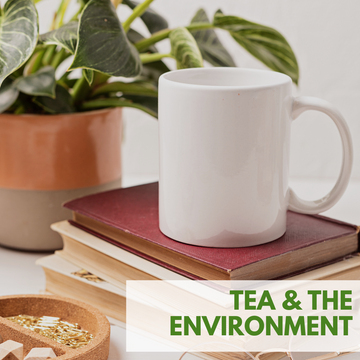May is Mental Health Awareness Month, a time dedicated to raising awareness about mental health issues, reducing stigma, and promoting support and resources for those affected. It's an opportunity to start conversations about mental health, share personal experiences, and advocate for better mental health care and services. Throughout the month, various organizations, communities, and individuals engage in activities such as educational events, fundraisers, and social media campaigns to spread awareness and encourage people to prioritize their mental well-being. It's a reminder that mental health is just as important as physical health and that seeking help is a sign of strength. By shining a light on mental health during May and beyond, we can work towards creating a more supportive and understanding society for everyone.
Tea can play a role in supporting mental health during Mental Health Awareness Month and beyond. Its calming properties can provide a moment of tranquility in hectic times, promoting relaxation and stress reduction. The ritual of brewing and sipping tea can also serve as a mindful practice, grounding individuals in the present moment and fostering a sense of peace. Additionally, certain compounds found in tea, such as L-Theanine in green tea, may have mood-enhancing effects, promoting feelings of calmness and well-being. Incorporating tea into self-care routines can provide a simple yet effective way to nurture mental health and promote overall wellness. Whether enjoyed alone or shared with others, a warm cup of tea can offer comfort and support during challenging times.
Tea has been enjoyed for centuries for its soothing and therapeutic properties. While it is not a substitute for professional mental health treatment, tea can be a part of a holistic approach to support your mental health. Here are several ways in which tea can contribute to mental well-being:
- Relaxation: The act of making and sipping tea can be a calming ritual. Many people find it to be a soothing and meditative experience. This relaxation can help reduce stress and anxiety.
- Caffeine Content: Tea contains caffeine, although usually in smaller amounts than coffee. This can provide a mild energy boost and help improve focus and concentration. Be cautious, however, if you are sensitive to caffeine, as too much can lead to increased anxiety.
- L-Theanine: This amino acid is found in tea, particularly in green tea. It is known to have a calming effect and can help reduce stress and anxiety. L-Theanine is often used in supplements and nootropics for its potential cognitive benefits.
- Antioxidants: Tea, especially green tea, is rich in antioxidants, such as catechins. Antioxidants help protect cells from damage caused by free radicals. This can have a positive impact on brain health and may reduce the risk of cognitive decline.
- Hydration: Proper hydration is essential for overall well-being, including mental health. Dehydration can lead to symptoms like irritability and difficulty concentrating. Tea, when consumed without excessive additives like sugar, can contribute to your daily fluid intake.
- Herbal Teas: Some herbal teas are known for their calming effects. Chamomile, lavender, and valerian root teas, for instance, have been used to help with sleep and relaxation. Peppermint and ginger teas can also soothe digestive discomfort, which can indirectly affect mental health.
- Social Connection: Sharing a cup of tea with a friend or loved one can be a bonding experience. Social connections are vital for mental health and can provide emotional support.
- Mindfulness: The preparation and enjoyment of tea can be a mindfulness practice. Mindfulness has been shown to reduce symptoms of anxiety and depression.
- Variety: The wide variety of tea flavors and types allows you to choose the one that best suits your taste and mood, making it an enjoyable and customizable part of your self-care routine.
It's important to remember that while tea can be a helpful addition to your mental health toolkit, it should not be a sole solution for mental health issues. If you're struggling with mental health concerns, it's crucial to seek professional help from a therapist, counselor, or psychiatrist. They can provide you with the appropriate guidance and treatment to address your specific needs.




